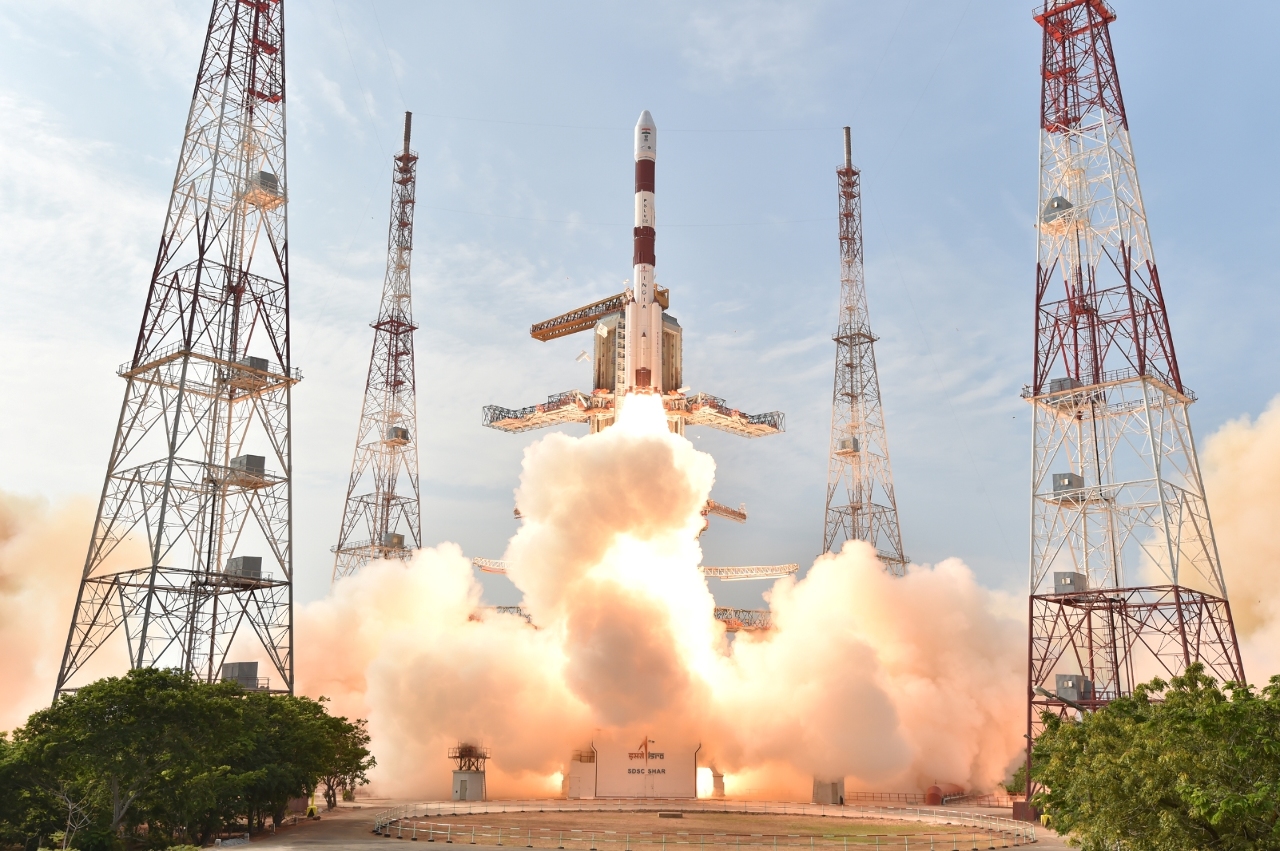India’s Polar Satellite Launch Vehicle, PSLV-C32, successfully launched the 1,425kg IRNSS-1F, the sixth satellite in the Indian Regional Navigation Satellite System (IRNSS) On 10th March from the Satish Dhawan Space Centre SHAR, Sriharikota. The launch marked the 33rd consecutive success for PSLV and the 12th in the 'XL' configuration.
Following lift-off at 1601 hrs (4:01 pm) IST from the Second Launch Pad, subsequent flight events (strap-on ignitions and separations, 1st stage separation, 2nd stage ignition, heat-shield separation, 2nd stage separation, 3rd stage ignition and separation, 4th stage ignition and satellite injection) took place as planned.
After a flight of 19 minutes 34 seconds, the satellite was injected into an elliptical orbit (284km X 20,719km) inclined at 17.866 degree to the equator (very close to the intended orbit) and successfully separated from the PSLV fourth stage. After separation, the solar panels of IRNSS-1F were deployed automatically. ISRO's Master Control Facility (MCF) at Hassan, Karnataka took over the control of the satellite.
In the coming days, four orbit manoeuvres will be conducted from MCF to position the satellite in geostationary orbit at 32.5 deg East longitude.
IRNSS-1F is the sixth of the seven satellites constituting the space segment of the Indian Regional Navigation Satellite System. IRNSS-1A, 1B, 1C, ID and IE, the first five satellites of the constellation, were successfully launched by PSLV on 2nd July 2013, 4th April 2014, 16th October 2014, 28th March 2015 and 20th January 2016, respectively. All five satellites are functioning satisfactorily from their designated orbital positions.
IRNSS is an independent regional navigation satellite system designed to provide Standard Positioning Services (SPS) and Restricted Services (RS) in the Indian region and 1,500km around the Indian mainland. IRNSS-1G is scheduled to be launched by PSLV in April 2016, thereby completing the IRNSS constellation.

